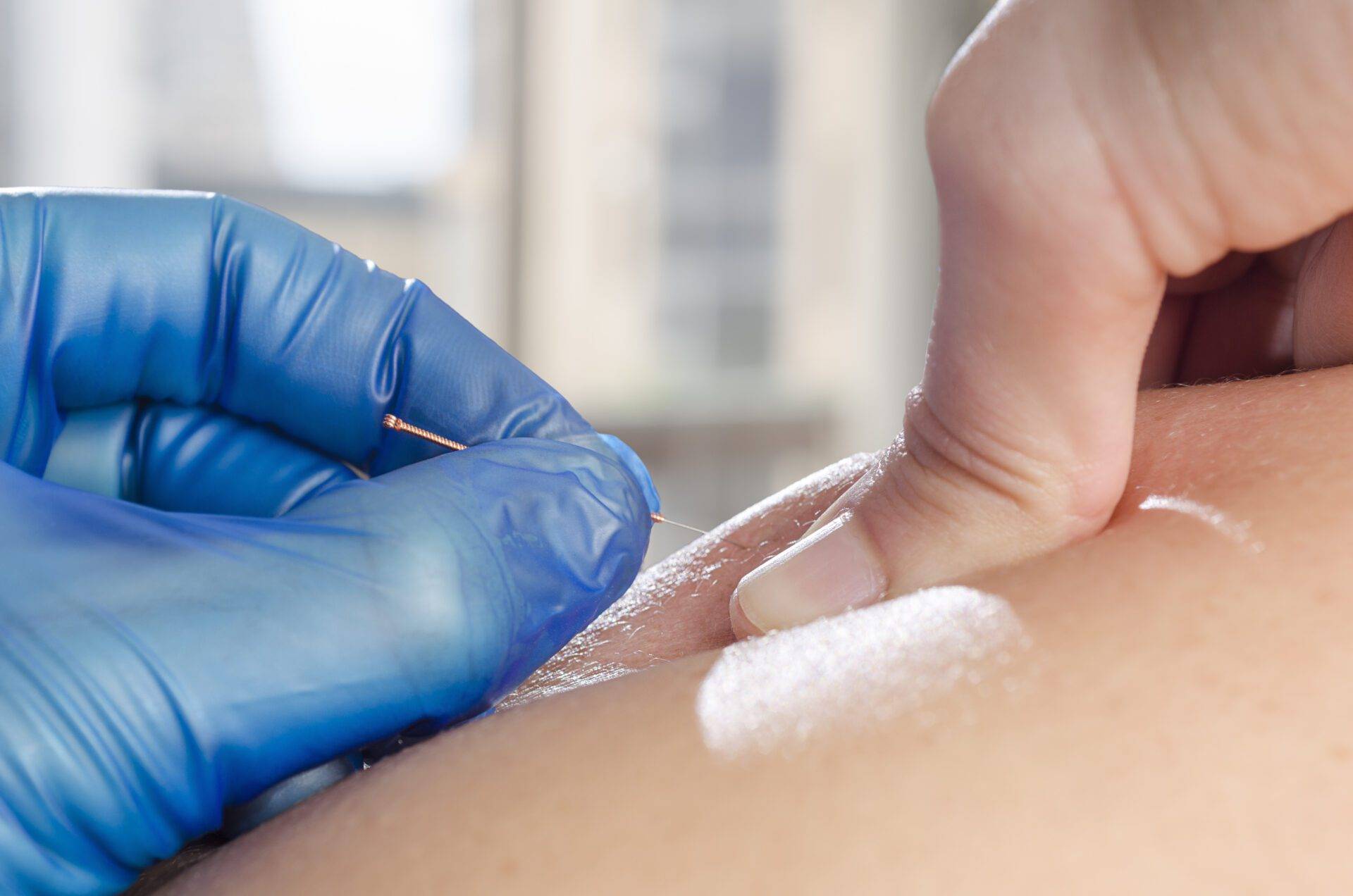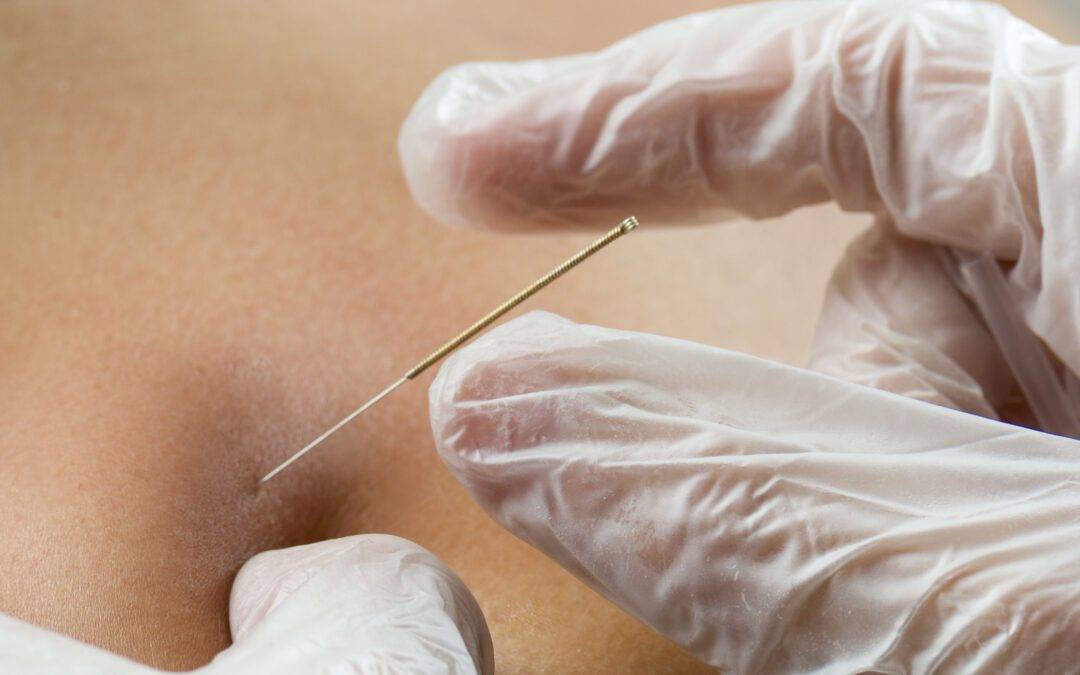By Maria Gehue, PT
2 Minute Read


What can cause trigger points to develop?
Some contributing factors to TrP development can be trauma, such as an injury eg. ankle sprain, hamstring strain, or quadriceps contusions. Other mechanical factors such as poor posture or ergonomics cause muscles to undertake frequent and improper loads that also contribute to tender points. Conditions such as arthritis that lead to degeneration can be a factor, along with emotional stress as muscular tension often rises.
What should I expect during and after treatment?
Like any other form of needling technique, there is a small expected amount of discomfort. Although common, discomfort caused by dry needling should be tolerable, and if not the treatment can be quickly stopped. There are also some people that are not bothered in the least so it is very individual! So what will happen? First, the practitioner must find the tender point within the muscle, and determine the size and quantity of TrPs. During the physical needling process, the needle is only in the muscle for a few seconds. The practitioner will piston the needle in and out to ensure proper release of the trigger point and then apply steady pressure once the needle is removed to decrease residual pain. Afterward, you will notice that the muscle feels tired as if it has been worked out quite well. I encourage all my patients to keep the muscle moving for the rest of the day and stay consistent with stretching it out. This will ensure that the muscle reaches the target length and maintains improvement in range of motion and function. Often by the next day, you feel great and are eager to do it all over again! I look at it like a quick deep-tissue massage with amazing results!

If you have any questions or feel like dry needling may be helpful to you, you can contact the clinic at info@activeapproach.ca.
*The information provided in this blog article comes from Acupuncture Canada’s Dry Needling Certification Program. The trigger point image can be found originally at https://www.balanceorlando.com/trigger-point-therapy/.

